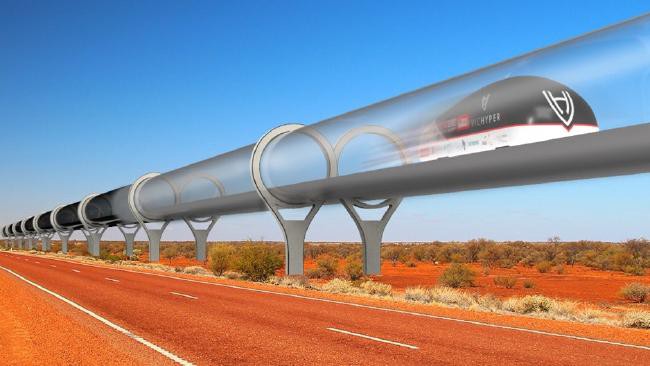
Well-known investor and entrepreneur Shervin Pishevar is recognized for investing in the transportation of the future, specifically in systems that have never been introduced to the market before. Companies that presently have or have had Pishevar on board as and investor and/or advisor include Hyperloop One (Now Virgin Hyperloop), Uber, Postmates, Didi, Fair, and his latest transportation venture, Bolt Mobility. Part of the challenge of these new transportation companies entering the marketplace is the need for new language and legislation that accurately and fairly addresses the new product or service for the company and the consumers that will ultimately benefit from the new technology.
Bolt Mobility recently held a promotional launch and news conference on the steps of New York City Hall. Bolt advisor Usain Bolt, an Olympic gold medalist and one of the fastest runners in the world, spoke to reporters about the new e-scooters and why new forms of travel are important to society. Bolt also talked about the need for new legislation to be approved to address the revolutionary new transit opportunities offered by the company. Safety for consumers is a top priority for Bolt Mobility and is built into the very design of the product.
When a product or service is very new and changes the status quo, new legislation is necessary to address public safety and other concerns. Pishevar certainly found this to be true when he invested in Uber, and he is facing that challenge again in a big way with the Hyperloop development. Hyperloop travel is not exactly train travel, so the laws currently on the books don’t really fit the new service. Sometimes, existing legislation can be used temporarily, but ultimately, new laws must be drafted and approved to pave the way for progress.
In interviews with media, Pishevar has explained that the need for new legislation is not a new concept for investors or entrepreneurs. It was the same for the first airplanes and the first automobiles, so people who invest in transportation must be patient. That’s not always easy for investors, especially when the delays are unnecessarily slow or the new laws are so inadequate that they favor the competition.
New Language Needed for New Technology

Legislation for any new business can be a nightmare, and that is even more prevalent for a startup that launches a product or service that is truly unique in the marketplace.
Business News Daily recently reported on issues of compliance, advising new businesses that failing to stay on top of new legislation could result in startups incurring penalties and potential legal issues. The news outlet identified key areas that new businesses must pay strict attention to if they want to stay out of legal trouble. Those areas included legislation relating to sales tax, tariffs, and trade laws; U.S. tax codes; and measures raising the minimum wage or mandating paid sick leave. The expense of keeping abreast of all of the changes is an enormous task, and hiring an expert to remain on staff for the new company is often the best course of action.
Federal, state, and local policies are either changing quickly or likely to change soon, and they can make the difference between the success or failure of a small business. Governments, whether at the federal, state, or local level, that make it easy for new businesses to comply with new legislation lead the way in creating new opportunities and economic growth.
Part of the ongoing app-driven controversy is whether members of the “gig economy” – which includes Uber drivers, dog walkers, musicians, artists, hairdressers, and others – are independent contractors or employees. Classifying workers as employees requires companies to pay for overtime, Social Security and Medicare taxes, workers’ compensation, unemployment and disability insurance, and benefits such as family leave and sick pay. That can add significantly to labor costs.
The Los Angeles Times recently reported that California is moving to codify a court decision to restrict employers’ use of independent contractors, and the new law is likely to affect companies like Uber. Part of the challenge, sources say, is the scale of such large companies and the widespread and growing use of such services in light of the status quo.
In the past, anyone who wanted a ride to the airport could get a taxi, but with companies like Uber, consumers were given more choices, drivers had an easy way to make extra money, and for a while, prices were competitive. As these companies grow and influence the habits of modern society, even the language of contracting the services changes. “Call a cab” becomes “get an Uber.” Using an Uber for transportation, for example, is not exactly the same thing as using a taxi, so new language and law is crafted to address the changes. Governments concerned about independent contractors (and whether they are paying their taxes properly) are working hard to pass legislation to ensure that proper documentation takes place and contractors are treated fairly. Sometimes, the new legislation works to limit the growth, development, and profitability of such game-changing companies.
Employers who hire independent contractors are typically not held to the standards for minimum wage, overtime, and rest breaks. In recent years, the hiring of workers as independent contractors has grown by leaps and bounds. Independent contractors decide when they want to work and how often they want to work and even schedule their own breaks. A recent study at Harvard University estimated that over 12 million people in the United States, nearly 9 percent of the workforce, are considered independent contractors, and the trend toward “the gig economy” is not showing any signs of slowing down.

Following its new product launch, Bolt Mobility leaders urged New York State to pass legislation that paves the way for the company’s carbon-free scooters, particularly in areas where public transportation is scarce.
Bolt Mobility is also partnering with local law enforcement, policymakers, and community leaders to keep safety a priority. The size and scope of New York City and transportation needs for its citizens require leaders to respond to new ideas with caution. New legislation takes time. Laws are crafted and often re-crafted in the interest of responding to all stakeholders.
Pishevar says that one of the reasons he was interested in Bolt Mobility in the first place was that the company has engineered revolutionary designs in sustainable-energy electric devices. Riders are more balanced and safer with the foot pads located on the sides and facing forward. There are charging stations for the batteries and space on the scooters for shopping bags or backpacks. These scooters can help alleviate transit issues in urban areas, including congestion and poor air quality. An investment in the expansion of Bolt is a significant step toward improving the lives of residents and tourists who traverse the urban core of all major cities around the world.
Currently, Bolt Mobility has fleets of personal electric scooters on the streets of Fort Lauderdale, Florida; Arlington, Virginia; and Alexandria, Virginia. Cities on the list for expansion include Miami, Atlanta, Nashville, and Los Angeles.
Transportation experts are looking at how the combination of big data and machine learning in transportation could lead to major changes, but that’s just one way that transport systems will look different in years to come. Machine learning can help minimize risk by providing the ability to predict disruptions before they occur, but other innovations taking the world by storm include the development of hyperloop technologies, greater acceptance of self-driving vehicles, and the continued economic changes of ride sharing, bike sharing, or (with Bolt Mobility) e-scooter sharing communities.
Experts estimate that the ride-sharing economy will continue to grow. Some calculate an average of 15 million ride-hailing trips a day globally, which they expect to increase to 97 million daily trips by 2030. MarketWatch recently reported that the overall ride-hailing market is expected to grow to $285 billion in the next 13 years.
Another of Pishevar’s portfolio clients, Postmates, is changing the way people get items delivered, so new language and legislation must be crafted to address the new technology.

Postmates is transforming the way goods move around cities by enabling anyone to have anything delivered on-demand.
The revolutionary urban logistics platform connects customers with local couriers who can deliver anything from any store or restaurant in minutes. The company’s mission is to empower communities to shop locally with no waiting and provide businesses with the ability to offer delivery.
When something is so new and different that new words must be coined, those new businesses (and the consumers who benefit from the new products and services) can expect a few bumps along the road before language and legislation catches up and the path to profit becomes smoother.
TechCrunch reported that Postmates is launching a new feature called “Postmates Party” that allows delivery customers in the same neighborhood to combine their orders and save on costs. The feature illustrates how Postmates, one of the earlier entrants to the billion-dollar food delivery wars, is trying to remain competitive by appealing to price-sensitive customers. Customers using the app can tap on the Postmates Party tab, which will show trending merchants from which people in their neighborhood are ordering at that moment. By joining the “party,” customers can share the delivery from popular restaurants and get free delivery.
For now, the Postmates “join the party” feature is offered in some of the nearly 3,000 U.S. cities in which the service currently operates. The feature is now available in Chicago, Las Vegas, Long Beach, Los Angeles, Miami, New York City, Phoenix, San Francisco, San Diego, Seattle, Orange County, and Philadelphia.
Hyperloop One
One of Pishevar’s most exciting investments is Hyperloop One (now Virgin Hyperloop One). This may be the best example of the need for new language and legislation in all of Pishevar’s current portfolio. Before, the word “hyperloop” wasn’t even a part of the language of the transportation business, unless that transportation was mentioned in a science fiction novel or program. The term has been credited to industrialist Elon Musk.
In a 58-page white paper in August 2013, Musk proposed a vacuum-tube network that could transport passengers from San Francisco to Los Angeles at speeds of over 700 miles an hour. With technology that mirrors science fiction, it is now a reality and an industry moving forward with at least three companies, including Hyperloop Technologies. The team includes Pishevar as co-founder.
Sometimes called the fifth mode of transportation, hyperloop travel is expected to be as fast as a plane, cheaper than a train, and continuously available in any weather while emitting no carbon. If commuters and visitors can get from Los Angeles to Las Vegas in 20 minutes or New York to Philadelphia in 10 minutes, these cities would turn into metro stops. Because these companies are using proprietary technology, how the systems work is only described in general terms.
Virgin Hyperloop One is also moving quickly in development, spearheaded by Sir. Richard Branson. The overarching mission of hyperloops is to serve humanity while minimizing impact on the environment. Hyperloop travel is described as clean, with zero direct carbon emissions. Pishevar told reporters that as an American, he would prefer the first hyperloop to be located in the United States but realistically expects faster approval from other countries.
A hyperloop pod display was showcased in late February 2018 at the UAE Innovation Week in Dubai, where a Dubai to Abu Dhabi route is being considered. Guests got to step into the display’s aerodynamically designed capsule. Inside, they found an interior made of the best materials, including leather seats featuring a futuristic broadcasting and information display on each armrest. The entertainment systems are designed to keep passengers occupied during the journey.
The Mumbai to Pune corridor, a densely populated area in India, is another region of the world that would benefit from the development of hyperloop travel. Because of this, a feasibility study has already started, funded by the state of Maharashtra.
So, how do hyperloop systems work? Hyperloops utilize energy that propels the system in a gradual acceleration of electric propulsion through a low-pressure tube, floating above a track using magnetic levitation. The bullet-like design of the capsule allows airline-like speeds inside a fully automated tube that is either hoisted above ground by columns or tunneled below ground.
Pishevar told reporters in November of 2018 that part of the challenge of developing the new technology in the United States is that there is still no legislative language that refers to hyperloop. In other words, the technology for hyperloop is so futuristic that no other transportation system currently available is similar enough to base legislation upon.
Pishevar maintains that a brand new regulatory framework is necessary when something arrives in the marketplace that is so new that the “old school” legislation doesn’t even come close. Although the hyperloop systems run on a track, the technology is not the same as high-speed rail. The companies are using proprietary technology, and therefore, descriptions of exactly how these systems work can’t be given to government agencies without that information also being distributed to competition. For safety legislation, the systems are usually only described in general terms.
Pishevar’s track record in investing in transportation companies, as well as other industries, is stellar. His name often shows up in places like The Midas List, a data-driven ranking by Forbes of the world’s 100 top venture capitalists. For the list, Forbes considers an investor’s involvement in each deal and places a premium on newer exits and returns that reflect bigger and bolder bets. Each year, Forbes reviews submissions for the list from hundreds of partners and dozens of firms.
Pishevar’s biography identifies him as an angel investor. An angel investor is an affluent individual who provides capital for a business startup, usually in exchange for convertible debt or ownership equity. Angel investments typically need and expect a very high return on investment; therefore, professionals like Pishevar seek those investments that have the potential to return at least 10 times their original investment within 5 years, usually through a defined exit strategy such as plans for an initial public offering or acquisition.
Angel investors perform better when they set their sights even higher, looking for companies that will have a high return over a five- to seven-year period. With a keen eye for the future, transportation business ideas, and the markets that will benefit the most from the new technology, Pishevar’s investment track record greatly exceeds the average return. He averages over 73 times the return on his investments.
Part of this success, he says, is having wisdom and exercising patience with the birth of new legislation that must be crafted to address new technology and transportation systems that the world has never experienced before.
To find out more about Pishevar, visit his website or follow him on Twitter @shervin.



